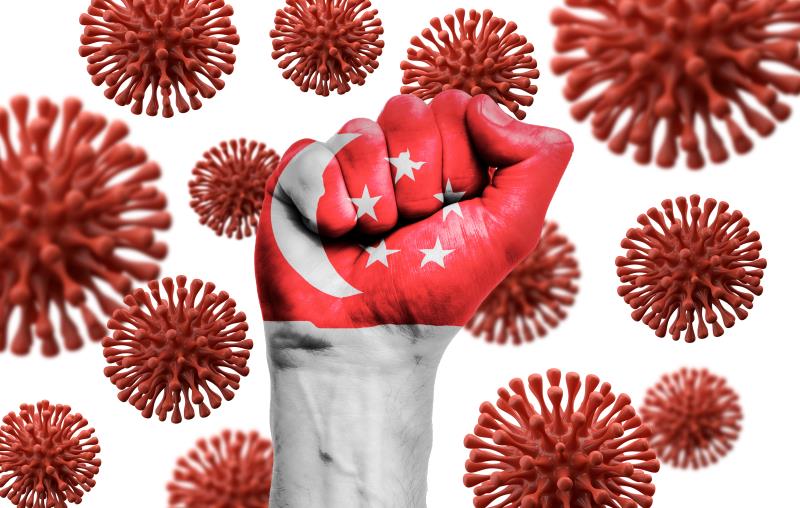
Singapore’s “all-government approach” in containing COVID-19 has set a good example to the world. But on March 21, the city-state mourned the deaths of its first two casualties from the virus – a Singaporean woman, and an Indonesian man, aged 75 and 64 years, respectively.
The first casualty (Case 90) had pre-existing conditions including heart disease and hypertension; the second (Case 212) had pneumonia and heart disease and was hospitalized in Indonesia prior to seeking treatment in Singapore.
Case 90 was linked to the cluster at The Life Church and Missions Singapore. She died after 26 days in the intensive care unit (ICU). Case 212 arrived in Singapore on Mar 13, sought treatment at Mount Elizabeth Hospital, and was later admitted to the National Centre for Infectious Diseases in critical condition.
On Mar 24, the number of COVID-19 cases had risen to 509, including 48 new cases (47 returning residents and long-term pass holders and one tourist with travel history to Europe, North America, and ASEAN countries).
“As we get more COVID-19 cases, more patients will need ICU care, and we must brace ourselves for more losses,” said Prime Minister Lee Hsien Loong in a Facebook post, as he expressed his deepest condolences to the bereaved families.
As of Mar 24, 152 cases had fully recovered and were discharged from the hospital. Of the confirmed cases confined, most are stable or improving. Fifteen, however, remained in critical condition at the intensive care unit.
No entry, no transit
On 11:59 pm, March 22, Singapore tightened its border control and enforced the “no entry, no transit” policy to short-term visitors to avert importation of the virus. Previously, short-term visitors – except for travellers from a few countries – were allowed to enter the island state and issued only a 14-day stay-home notice upon setting foot here.
Effective March 23, only work pass holders (and their dependents) providing essential services, for example, those working in the healthcare and transport sectors, will be allowed to enter or return to Singapore. The ban caught work pass holders vacationing in their original country off guard, forcing many to go on a no-pay or extended holiday.
89 work passes revoked
The Ministry of Manpower (MOM) has so far revoked 89 work passes for breaching entry approval and stay-home notice requirements. Of the number, 73 had travel history to COVID-19-affected countries and entered Singapore without obtaining entry approval from the MOM. Sixteen of which breached the leave of absence or stay-home notice requirements. All 89 work pass holders were permanently banned from working in Singapore, the MOM said.
The MOM has also suspended the work pass privileges of employers for a period of 1–3 years, for failure to discharge their duties to ensure that their employees comply with the leave of absence or stay-home notice requirements.
The MOM reminded that entry approvals and stay-home notice are now mandatory for work pass holders entering Singapore regardless of where they come from. The Ministry added that it will continue to take enforcement measures against errant employers or employees who are noncompliant.
Do not give up!
The pandemic remains out of control, putting a greater strain on economies and stoking concerns of a worldwide recession. As of this writing, Italy has taken over China as the global epicentre of COVID-19. Still, the rule of the game is not to give up, said WHO chief Tedros Adhanom Ghebreyesus. “An all-of-society, all-of-government approach should work.”